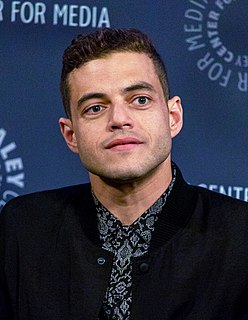
The Academy Awards, also known as the Oscars, are a set of awards for artistic and technical merit in the film industry. Given annually by the Academy of Motion Picture Arts and Sciences (AMPAS), the awards are an international recognition of excellence in cinematic achievements as assessed by the Academy's voting membership. The various category winners are awarded a copy of a golden statuette, officially called the "Academy Award of Merit", although more commonly referred to by its nickname "Oscar".

The Pulitzer Prize is an award for achievements in newspaper, magazine and online journalism, literature, and musical composition in the United States. It was established in 1917 by provisions in the will of American (Hungarian-born) Joseph Pulitzer who had made his fortune as a newspaper publisher, and is administered by Columbia University in New York City. Prizes are awarded yearly in twenty-one categories. In twenty of the categories, each winner receives a certificate and a US$15,000 cash award. The winner in the public service category of the journalism competition is awarded a gold medal.

A Grammy Award, or Grammy, is an award presented by The Recording Academy to recognize achievements in the music industry. The annual presentation ceremony features performances by prominent artists, and the presentation of those awards that have a more popular interest. The Grammys are the second of the Big Three major music awards held annually.

The Antoinette Perry Award for Excellence in Broadway Theatre, more commonly known as the Tony Award, recognizes excellence in live Broadway theatre. The awards are presented by the American Theatre Wing and The Broadway League at an annual ceremony in Manhattan. The awards are given for Broadway productions and performances, and an award is given for regional theatre. Several discretionary non-competitive awards are also given, including a Special Tony Award, the Tony Honors for Excellence in Theatre, and the Isabelle Stevenson Award. The awards are named after Antoinette "Tony" Perry, co-founder of the American Theatre Wing.
The Academy Award for Best Foreign Language Film is one of the Academy Awards handed out annually by the U.S.-based Academy of Motion Picture Arts and Sciences (AMPAS). It is given to a feature-length motion picture produced outside the United States of America with a predominantly non-English dialogue track.
Live Action Short Film is a category at the Academy Awards, existing under various names as a single category since 1957.
The Academy Award for Best Original Score is an award presented annually by the Academy of Motion Picture Arts and Sciences (AMPAS) to the best substantial body of music in the form of dramatic underscoring written specifically for the film by the submitting composer.

The Golden Globe Awards are accolades bestowed by the 93 members of the Hollywood Foreign Press Association beginning in January 1944, recognizing excellence in film and television, both domestic and foreign.
An Emmy Award, or simply Emmy, is an American award that recognizes excellence in the television industry, and is the equivalent of an Academy Award, the Tony Award, and the Grammy Award.
The Grammy Award for Best Female Pop Vocal Performance was a Grammy Award recognizing superior vocal performance by a female in the pop category, the first of which was presented in 1959. It was discontinued after the 2011 Grammy season. The award went to the artist. Singles or tracks only are eligible.
The E! People's Choice Awards, formerly known as the People's Choice Awards, is an American awards show, recognizing people in entertainment, voted online by the general public and fans. The show has been held annually since 1975.

Lambda Literary Awards, also known as the "Lammys", are awarded yearly by the U.S.-based Lambda Literary Foundation to published works which celebrate or explore LGBT themes. Categories include Humor, Romance and Biography. To qualify, a book must have been published in the United States in the year current to the award. The Lambda Literary Foundation states that its mission is "to celebrate LGBT literature and provide resources for writers, readers, booksellers, publishers, and librarians – the whole literary community." The awards were instituted in 1988.

The GLAAD Media Award is an accolade bestowed by the GLAAD to recognize and honor various branches of the media for their outstanding representations of the lesbian, gay, bisexual and transgender (LGBT) community and the issues that affect their lives. In addition to film and television, the Awards also recognize achievements in other branches of the media and arts, including theatre, music, journalism and advertising.

The AVN Awards are film awards sponsored and presented by the American adult video industry trade magazine AVN to recognize achievement in various aspects of the creation and marketing of American pornographic movies and they are called the "Oscars of porn".
The British Academy Television Awards, also known as the BAFTA TV Awards, are presented in an annual award show hosted by the British Academy of Film and Television Arts (BAFTA). They have been awarded annually since 1955.
The Primetime Emmy Award is an American award bestowed by the Academy of Television Arts & Sciences (ATAS) in recognition of excellence in American primetime television programming. First given out in 1949, the award was originally referred to as simply the "Emmy Awards" until the first Daytime Emmy Award ceremony was held in 1974 and the word "prime time" was added to distinguish between the two.
The Ditmar Award has been awarded annually since 1969 at the Australian National Science Fiction Convention to recognise achievement in Australian science fiction and science fiction fandom. The award is similar to the Hugo Award but on a national rather than international scale.

The Hugo Awards are a set of literary awards given annually for the best science fiction or fantasy works and achievements of the previous year. The awards are named after Hugo Gernsback, the founder of the pioneering science fiction magazine Amazing Stories, and were officially named the Science Fiction Achievement Awards until 1992. Organized and overseen by the World Science Fiction Society, the awards are given each year at the annual World Science Fiction Convention as the central focus of the event. They were first given in 1953, at the 11th World Science Fiction Convention, and have been awarded every year since 1955. Over the years that the award has been given, the categories presented have changed; currently Hugo Awards are given in more than a dozen categories, and include both written and dramatic works of various types.

The 91st Academy Awards ceremony, presented by the Academy of Motion Picture Arts and Sciences (AMPAS), honored the best films of 2018, and took place at the Dolby Theatre in Hollywood, Los Angeles, California. The ceremony was held on February 24, 2019. During the ceremony, AMPAS presented Academy Awards in 24 categories. The ceremony was televised in the United States by the American Broadcasting Company (ABC), produced by Donna Gigliotti and Glenn Weiss, with Weiss also serving as director. It was the first ceremony in three decades, since the 61st Academy Awards in 1989, to be conducted with no host.









